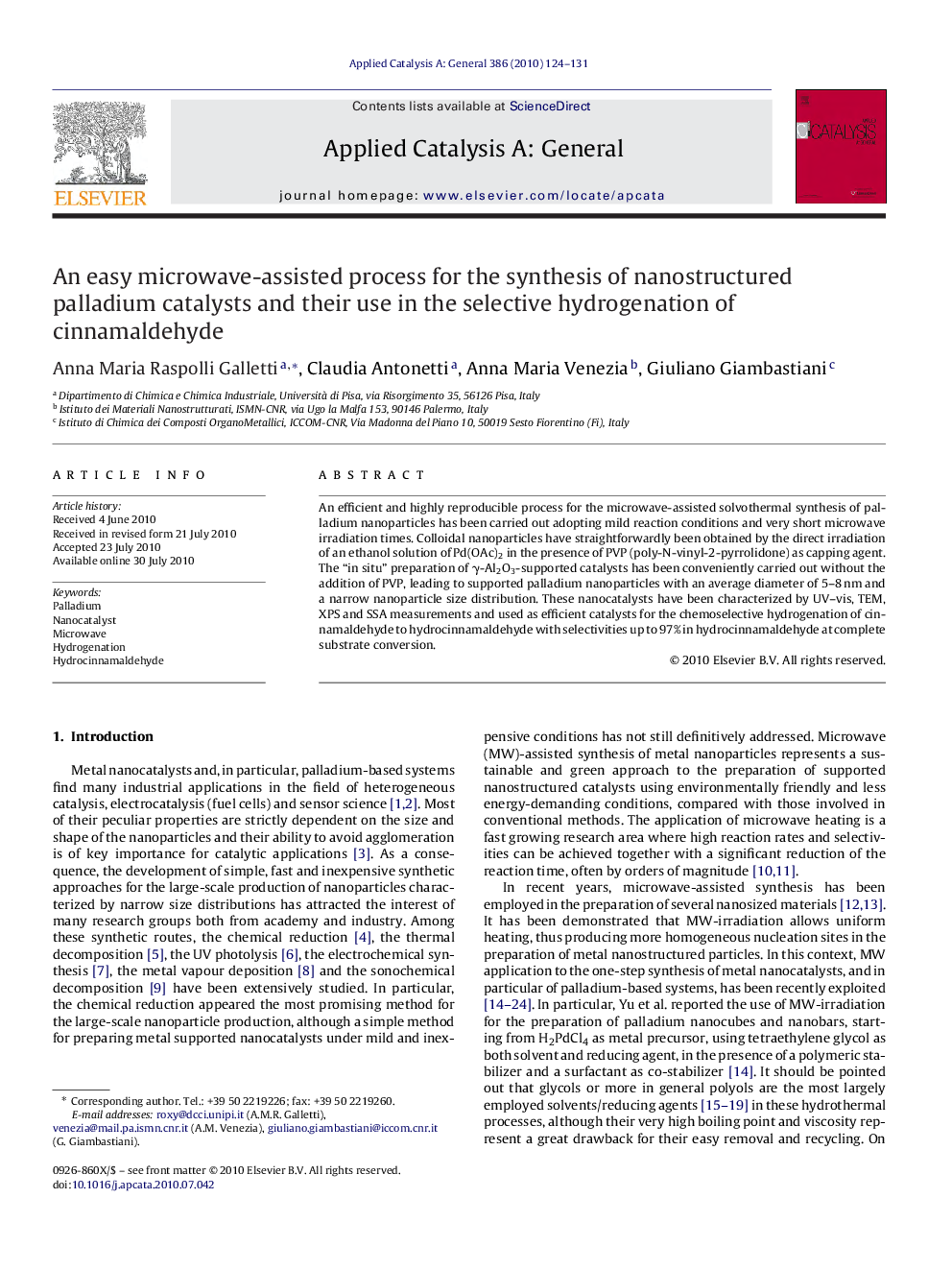| Article ID | Journal | Published Year | Pages | File Type |
|---|---|---|---|---|
| 41915 | Applied Catalysis A: General | 2010 | 8 Pages |
An efficient and highly reproducible process for the microwave-assisted solvothermal synthesis of palladium nanoparticles has been carried out adopting mild reaction conditions and very short microwave irradiation times. Colloidal nanoparticles have straightforwardly been obtained by the direct irradiation of an ethanol solution of Pd(OAc)2 in the presence of PVP (poly-N-vinyl-2-pyrrolidone) as capping agent. The “in situ” preparation of γ-Al2O3-supported catalysts has been conveniently carried out without the addition of PVP, leading to supported palladium nanoparticles with an average diameter of 5–8 nm and a narrow nanoparticle size distribution. These nanocatalysts have been characterized by UV–vis, TEM, XPS and SSA measurements and used as efficient catalysts for the chemoselective hydrogenation of cinnamaldehyde to hydrocinnamaldehyde with selectivities up to 97% in hydrocinnamaldehyde at complete substrate conversion.
Graphical abstractFigure optionsDownload full-size imageDownload high-quality image (68 K)Download as PowerPoint slideResearch highlights▶ MW-assisted synthesis of colloidal and supported Pd-nanoparticles was carried out. ▶ Very mild reaction conditions were adopted working in ethanol. ▶ A reproducible environmentally friendly synthetic protocol was adopted. ▶ The supported catalysts were tested in the hydrogenation of cinnamaldehyde. ▶ Selectivity up to 97% in hydrocinnamaldehyde was ascertained at complete conversion.
